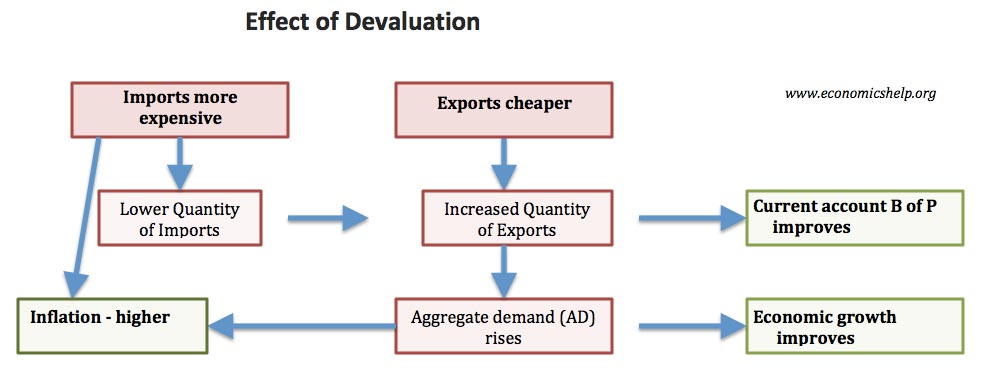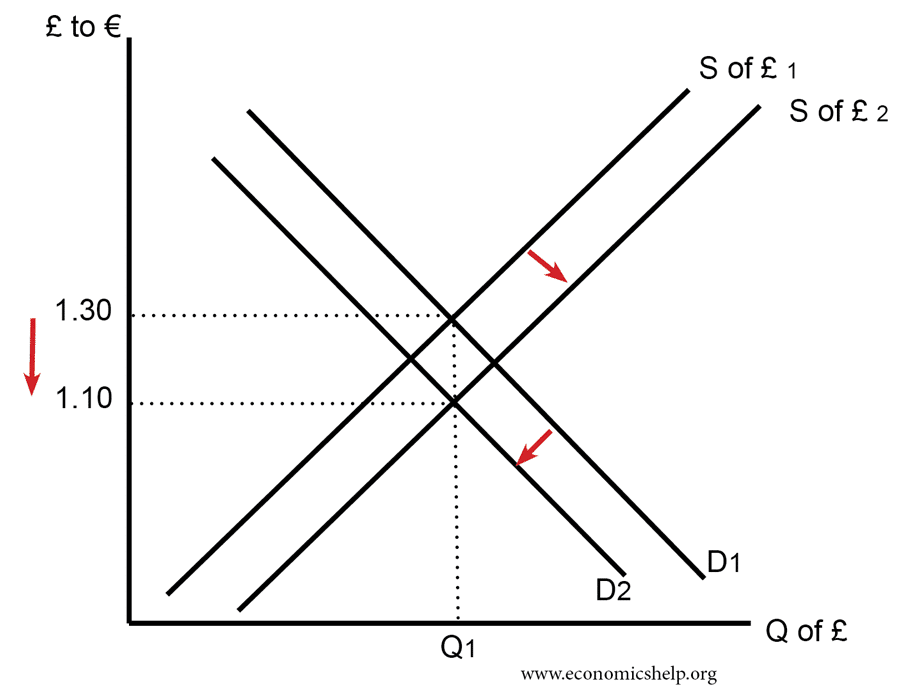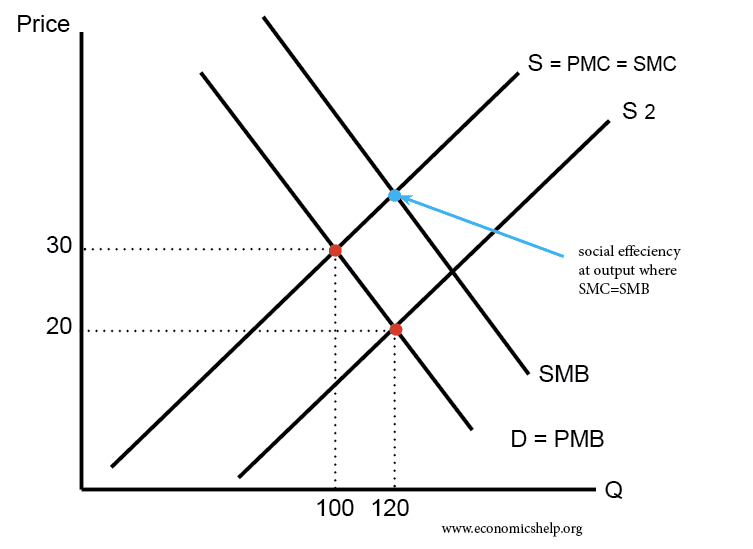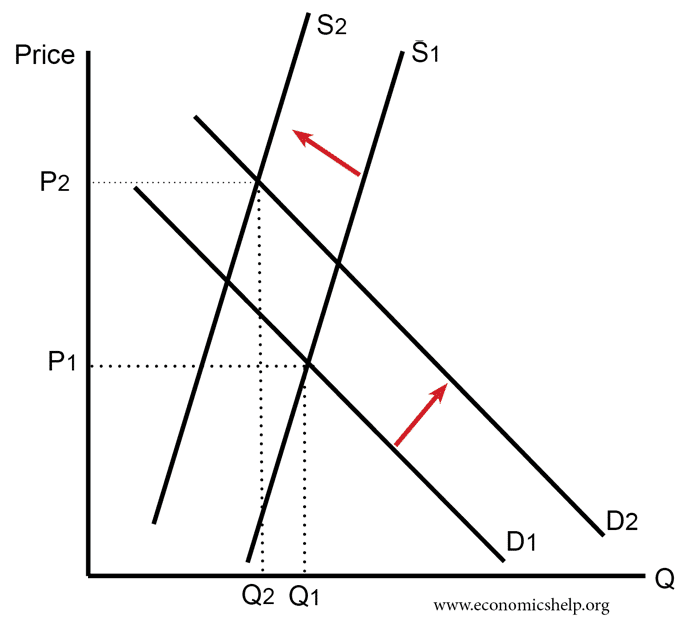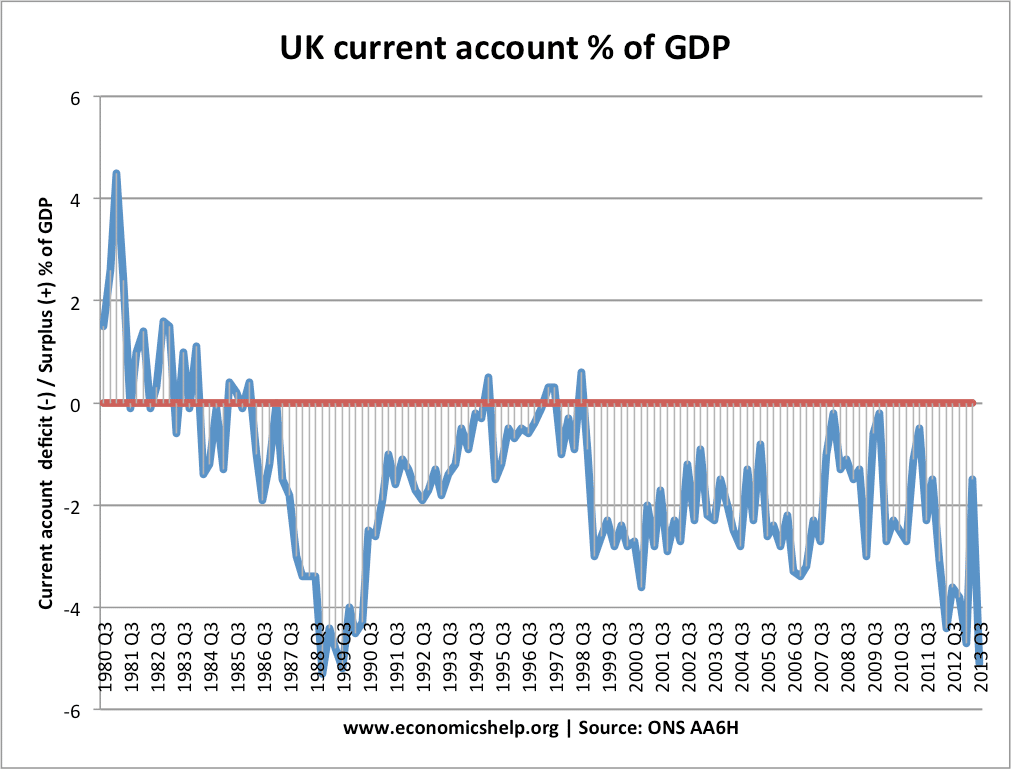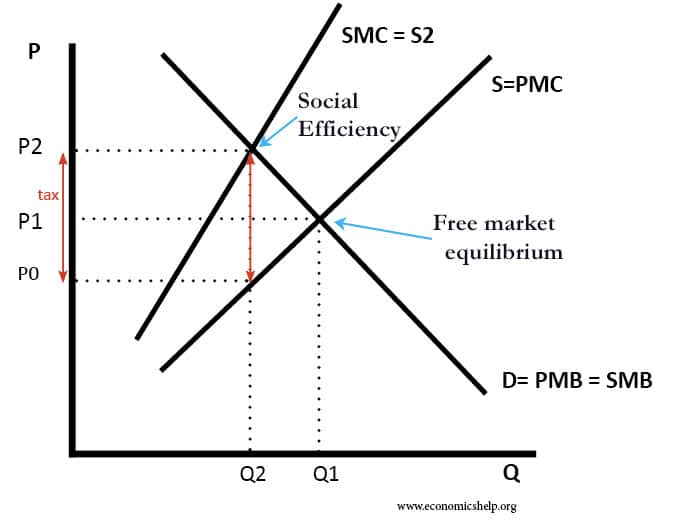Economic effect of a devaluation of the currency
A devaluation means there is a fall in the value of a currency. The main effects are: Exports are cheaper to foreign customers Imports more expensive. In the short-term, a devaluation tends to cause inflation, higher growth and increased demand for exports. A devaluation in the Pound means £1 is worth less compared to other …

